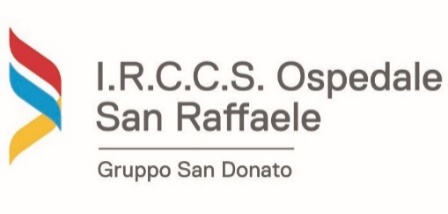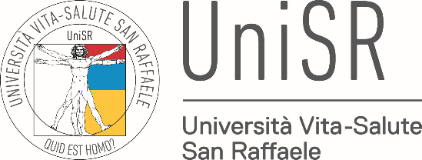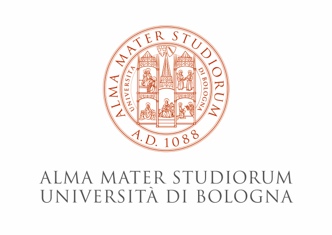San Raffaele Hospital in Milan bets on early detection of oral cancer
 |  |  |
Introduced a new salivary test developed by Studium Genetics, a spin-off of Alma Mater Studiorum - University of Bologna.
Milan, Nov. 8, 2023 - A simple salivary test could revolutionize the diagnosis of oral cancers, detecting them in the early stages with outstanding precision. The discovery is the result of research conducted by Studium Genetics, a spin-off of the Alma Mater Studiorum – University of Bologna, which has chosen IRCCS San Raffaele Hospital in Milan (San Donato Group) as a partner to introduce the new methodology into clinical practice and research.
The new epigenetic test is based on quantitative analysis of the DNA methylation level of 13 genes, discovered to be altered in oral carcinomas. It enables early detection of patients at risk of developing oral squamous cell carcinoma (OSCC) and its precursor, severe dysplasia. It is a noninvasive technique that can provide diagnostic, prognostic, and follow-up information with a high degree of accuracy: in a multi-center study published in the journal Head & Neck, a sensitivity of 97 percent and a specificity of 88 percent were achieved.
In current clinical practice, oral cancer screening is performed exclusively by visual inspection by specialists who, in the presence of suspicious lesions, invite patients to undergo a biopsy, which is essential for making a correct diagnosis. However, the same patient often refuses to undergo an invasive examination such as a biopsy, thus allowing a potential disease to progress. Moreover, OSCC is a condition that is not always easily detected, especially if it is precancerous in nature.
The test developed by Studium Genetics, which could revolutionize the diagnostics and treatment paradigm for this type of cancer, is quick and easy to perform: once the suspicious lesion is identified, samples are collected from the oral mucosa (tongue, cheek, palate) by simply passing a special brush equipped with bristles. The sample is collected in a tube and placed in a storage solution that keeps it at room temperature, ensuring its stability over time and facilitating its transport. The sample is then sequenced in authorized laboratories and analyzed bioinformatically quantifying the level of DNA methylation in the 13 genes associated with the disease. A calculation is then performed that, using a patented algorithm, generates a risk score for developing oral cancer.
Oral squamous cell carcinoma (OSCC) is a major public health challenge, with more than 745,000 cases reported worldwide and a 5-year mortality rate of about 60%. In addition, the risk of recurrence after surgery, ranging from 17% to 30%, is higher than any other type of cancer and is the leading cause of death.
There are four stages of OSCC, from I to IV, indicating its increasing severity.
“Stages I and II oral squamous cell carcinoma normally have good survival compared with stages III and IV, which have a high recurrence rate and 50% mortality within five years. Unfortunately, 2/3 of cases are diagnosed at stage III and IV at an advanced stage, where demolition and reconstructive surgery can be very impactful on the patient’s own anatomy, function, but also psyche. The real bet today is to be able to be very early in diagnosis: the earlier we are able to intercept the tumor at an early stage, the better the prognosis will not only be positive, but we will be able to intervene in a less invasive way, without compromising the patient's quality of life. We are convinced that this revolutionary technology can help us win this challenge,” said Professor Giorgio Gastaldi, head of maxillofacial prosthetic rehabilitation in cancer patients together with Professor Silvio Abati head of Oral Medicine and Pathology, both professors of the Vita Salute San Raffaele University afferent to the Department of Dentistry of IRCCS San Raffaele Hospital directed by Prof. Enrico Gherlone.
“The partnership between our university, its spin off Studium Genetics and IRCCS Ospedale San Raffaele, one of the reference centers in the diagnosis and treatment of cancer in the oral case, strengthens our bet on the identification of epigenetic modifications of DNA methylation as a new frontier in modern cancer medicine. We are confident that we have provided a fundamental tool to oral cancer patients, giving them a new concrete hope. The future perspective is to expand the collaboration also to the Vita-Salute San Raffaele University, a reality of excellence in research on oral cavity diseases,” concludes Professor Luca Morandi, associate of the Department of Biomedical and Neuromotor Sciences of the Alma Mater Studiorum – University of Bologna, developer of the test, which is operating in Europe and being approved in the United States, China and Brazil.
The test is particularly useful for people over 40 years of age, who consume alcohol or smoke regularly, patients presenting with leukoplakia, erythroplachia, oral lichen planus or any suspicious oral lesion. Finally, the test is an indispensable tool in the follow-up of patients previously treated for OSCC, as it is useful in detecting recurrences, which are very frequent and increase the risk of death of these patients. In any case, the indication for the actual use of this approach is left solely to the evaluation of the specialist.
Oral cavity cancers not only carry a significant social cost, but also represent a huge item of health care expenditure-between hospitalization, surgery and rehabilitation-that, thanks to the introduction of this early detection test, could be greatly reduced.
(Source: joint press release San Raffaele – University of Bologna)
